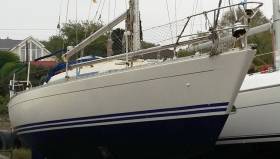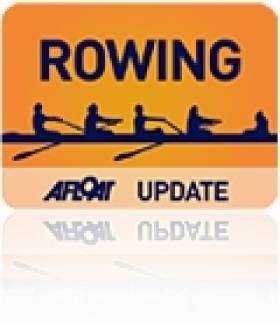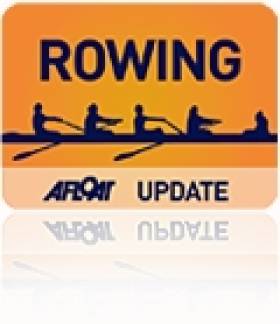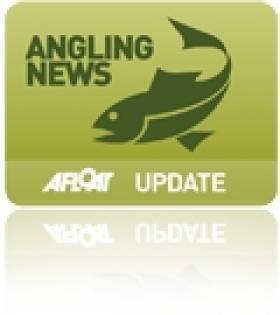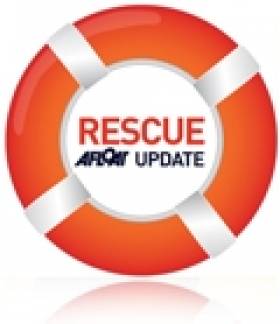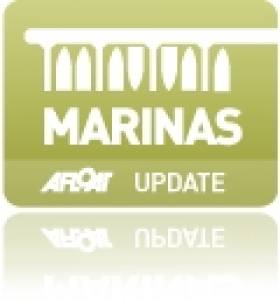Displaying items by tag: theft
Bray Sea Scouts in Appeal for Stolen Outboard Motors
Bray Sea Scouts have appealed for Ireland’s sailing and boating community to be on the lookout for two outboard engines that were stolen from their scout den this week.
The 5th Wicklow (Bray) Sea Scout Group say the 15hp and 40hp Yamaha outboards were cut off their Whaly boats after the den was broken into on Wednesday night (13 April).
“Keep an eye out but we fear they are well gone as it looks like a professional hit,” they added on social media.
Protect Your Boat – Podcast
It is, in my experience, an awful thing to board your boat and see the damage which has been done to it by thieves who have broken-in.
That happened to me a few years ago on my mooring at Crosshaven in Cork Harbour, not far from the Royal Cork Yacht Club out of which I sail and it was club staff who alerted me to what had happened.
My boat is a Sigma 33, Scribbler and this week, in the context of recent Garda investigations in Cork into marine thefts, I am recalling in my Podcast what happened and how I felt at the time and urging owners to remember to protect your boat.
I have been reminded of what happened by the recent Garda investigation carried in the Western and Northern areas of Cork County, as well as in the city, against what they described as “an organised crime group” engaged in marine theft. Boat engines were seized and two men arrested. Gardai from three divisions, plus a regional support unit were involved.
This was the reminder for me of the break-in to my own Sigma 33 on the mooring at Crosshaven, not far from the RCYC clubhouse and marina, a few years ago.
Listen to the Podcast here where I start by describing the damage and my emotions at the time and then facing a decision about the boat following the attack on her.
When you have listened set about, if you haven’t done so already, protecting your boat.
Portlaoise Gardai Recover Boating Equipment and Engines
#Rowing: Boating equipment worth €150,000 has been recovered by gardaí investigating the theft of boat engines. The haul included 74 outboard engines, ten boats and eight boat trailers. The public is asked to access the Garda social websites or ring 057 8674100 to arrange viewing.
There have been a number of thefts of engines and equipment from rowing clubs and the National Rowing Centre in recent years.
Rowers Sleep at National Rowing Centre as Thieves Strike
#ROWING: Outboard motors worth up to €20,000 were stolen from the National Rowing Centre in Cork at the weekend. It is understood that rowers from the High Performance Programme were staying at the NRC when thieves took the engines, which were attached to catamarans and tinnies moored on the water. The raid did not come from the land.
Rowing Ireland has advised that anyone who becomes aware of 15HP Hondas and 20HP Yamahas being offered for sale should contact the Gardaí.
Lough Mask Engine Thefts Prompt Concerns
#EngineTheft - The Mayo News reports that three boat engines have been stolen from moorings on Lough Mask in Co Mayo over the last fortnight.
Two engines were reported taken at Cahir Pier, a spot popular with tourists, while the third theft occurred at Burke's Island.
“It’s prevalent around the country, and it has happened on Lough Corrib, but it’s the first time it’s happened here," said local angler Denis Kelleher about the thefts. "It’s something I had hoped would stay away from the area."
Kelleher noted that with only one road in and out of both areas, installation of CCTV might prove a deterrent to any future burglaries - though local councillor Michael Burke raised concerns about how such a system would be managed.
The Mayo News has more on the story HERE.
New 'Scorpion Marine' Anti–Theft Product from Killen Marine
#boattheft – Dalkey boat dealer Killen Marine in County Dublin recently picked up an agency for an interesting marine security product that gives boat owners some added security at a time when a lot of boats, engines and equipment is being stolen.
The Scorpion Marine tracking device protects craft against illegal movement using GPS geo-fence technology.
Upon continuous movement of vessel a txt alert is sent to the boat owners chosen mobile device. Pinpoint location of a vessel is then accessible online via personal computer or Smartphone devices. The vessel will be displayed on a map with pin-point detail enabling you to locate it or pass details to the Gardai.
Rods Stolen from NI Angling Charity
#Angling - Sixty fishing rods were among items taken in a break-in at an angling charity's storage facility in Co Down, as BBC News reports.
Angling First - which says it has taught fishing skills to 2,000 children from disadvantaged areas across Northern Ireland - discovered the theft on Wednesday morning.
The shipping container outside Dromore where the charity keeps its equipment was found forced open, and items worth more than £600 (€745) were stolen.
In a statement, the PSNI said that the burglary occurred some time between Sunday 2 and Wednesday 5 December.
The charity's Mark McGivern told BBC News: "It makes you feel sick, it's probably been someone who has come to our pond, but they won't deter me from continuing."
Boat Stolen from Dollymount Sea Scouts Recovered by Gardaí
#STOLEN BOAT - Dollymount Sea Scouts have reported the recovery of a boat stolen from their scout den in north Dublin earlier this week.
The BP 18 standard boat was taken from outside the scout den at the Crow's Nest in Dollymount at some time between the hours of 5pm on Sunday 16 and 5pm on Monday 17 September.
But eagle-eyed gardaí in a patrol car from Santry spotted the boat in the driveway of a derelict house in a north Dublin housing estate.
The boat, Orion 2, was towed back to Santry Garda Station from where it was picked up by the sea scouts and brought home to Dollymount on Tuesday evening.
The brand new boat has a red fibreglass hull with brown varnished timber thwarts and gunwales, and is painted light grey inside. The boat is 18ft long and was last seen on its four-wheel trailer.
This type of boat is only used by Sea Scouts in Ireland and An Slua Muiri (Irish Navel Reserves). It has only been used a handful of times since its launch in May this year, and only one of this particular kind has been manufactured recently.
Thieves Take Engines from Volunteer Rescue Unit
#RESCUE - The Killaloe/Ballina Search and Recovery Unit in Co Clare has been left reeling after the engines powering its specialist dive boat were stolen recently.
According to the Irish Examiner, the 18-strong volunteer search team were "gutted" when they turned up for training on Wednesday to find thieves had broken into the boathouse and made off with two 90HP Honda engines, worth €15,000 each.
Chairman Tony O'Brien commented: "The boat is well marked and clearly identifiable so whoever took these engines knew what they were taking and that they were stealing from a volunteer community group."
O'Brien described the theft as a "sick act" and emphasised that "lives are being put at risk".
Anyone who might have information regarding the theft is urged to contact gardaí in Killaloe at 061 620540 or the Garda confidential line at 1800 666 111.
The Irish Examiner has more on the story HERE.
Daring Night Raid on 60 Shannon Boats
Gardaí in Carrick-on-Shannon are investigating a serious raid at a marina that saw as many as 60 boats vandalised.
The Irish Times reports that the raid early on Tuesday morning involved a five-strong masked gang using a number of vehicles, who robbed at least 40 of the boats of nautical instruments and electrical equipment and damaged 20 others.
The vessels appear to have been targeted among the 300 boats moored at Butler's marina on the River Shannon. The cost of damage to the boats is not yet known.
A staff member at Butler’s marina told The Irish Times that the company was not in a position to comment on the case.
Meanwhile, there are plans to circulate a list of all stolen items among Ireland's inland boating community.


























